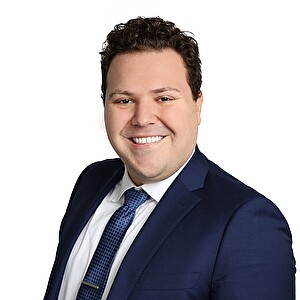“Gut health” is everywhere. It’s on drink labels, in sponsored posts, and across entire grocery aisles. In the last decade, it’s become one of the most persuasive—and pervasive—phrases in food and beverage marketing, especially in the so-called “wellness” space. The term sounds scientific. It suggests legitimacy. But in most cases, it’s just branding, and consumers are paying for it.
Take Poppi, the sparkling prebiotic soda that’s dominated influencer feeds and grocery endcaps. Its core pitch is health-forward: “prebiotics for gut health” in a fizzy, fun package. It sells itself as something more than just a substitute for a Coke: it’s a functional soda that could supposedly support digestion. Earlier this year, the company agreed to pay $8.9 million to settle a class action lawsuit that alleged those claims were misleading.
The problem? Each can contains a miniscule amount of agave inulin, a type of dietary fiber sometimes categorized as a prebiotic. But clinical studies suggest you’d need a substantially larger dose to get the digestive benefits implied by the branding. And any benefits from such a small amount of prebiotic are surely outweighed by the sugars in the drinks. In short, the lawsuit argued that consumers were misled into paying a premium for something that didn’t do what it promised.
That disconnect between branding and efficacy is more common than many realize. Companies lean on terms that consumers care about to create a “health halo,” with little accountability for whether the product delivers on its promises. But while “gut health” is not defined by the FDA, the agency is empowered to regulate misbranded and mislabeled foods, including those that use “health halo” marketing.
Trade regulators are paying attention, too, though enforcement lags far behind the trend. The FTC offers guidance for companies marketing “wellness” products, has taken action in several cases over false or exaggerated health claims, and has begun targeting products marketed with implied scientific backing. But for each enforcement action, a dozen new products with dubious claims take its place. For now, the best defense for most consumers is awareness and understanding of just how these products are labeled and regulated, and when necessary, taking legal action.
When companies make false or misleading claims, this gray area between implication and fact is exactly where problems arise. Without more concrete guardrails on what companies can claim, marketers will continue to push the boundaries of consumer trust. This is where consumer protection law comes in. When a company markets a product as beneficial to health, it shapes consumer expectations. If those expectations aren’t met—and especially if the health claim was part of the reason someone paid more for the product—there’s a case for economic injury. Plaintiffs in the Poppi suit didn’t need to show that the drink physically harmed them or even that it failed to help address their health concerns, if they had any. Instead, they argued that they paid more than they otherwise would have, based on a claim that wasn’t materially true.
Consumers deserve transparency. If a brand wants to sell a product on the basis of “gut health,” it should be able to back that claim with meaningful evidence. And if it can’t, it shouldn’t use the phrase at all. That’s not an unreasonable ask, it’s basic accountability. In the meantime, lawyers will have to keep doing what overworked and understaffed regulators can’t: forcing companies to tell the truth.
About Faruqi & Faruqi, LLP
Faruqi & Faruqi, LLP focuses on complex civil litigation, including securities, antitrust, wage and hour and consumer class actions as well as shareholder derivative and merger and transactional litigation. The firm is headquartered in New York, and maintains offices in California, Georgia and Pennsylvania.
Since its founding in 1995, Faruqi & Faruqi, LLP has served as lead or co-lead counsel in numerous high-profile cases which ultimately provided significant recoveries to investors, direct purchasers, consumers and employees.
To schedule a free consultation with our attorneys and to learn more about your legal rights, call our offices today at (877) 247-4292 or (212) 983-9330.
About Zachary M. Winkler
Zachary Winkler is an associate in Faruqi & Faruqi's Philadelphia office. Zachary's practice is focused on Consumer Protection.
 Zachary M. Winkler
Zachary M. Winkler
Associate at Faruqi & Faruqi, LLP
Pennsylvania office
Tel: (215) 277-5770
Fax: (215) 277-5771
E-mail: zwinkler@faruqilaw.com
Social: LinkedIn
